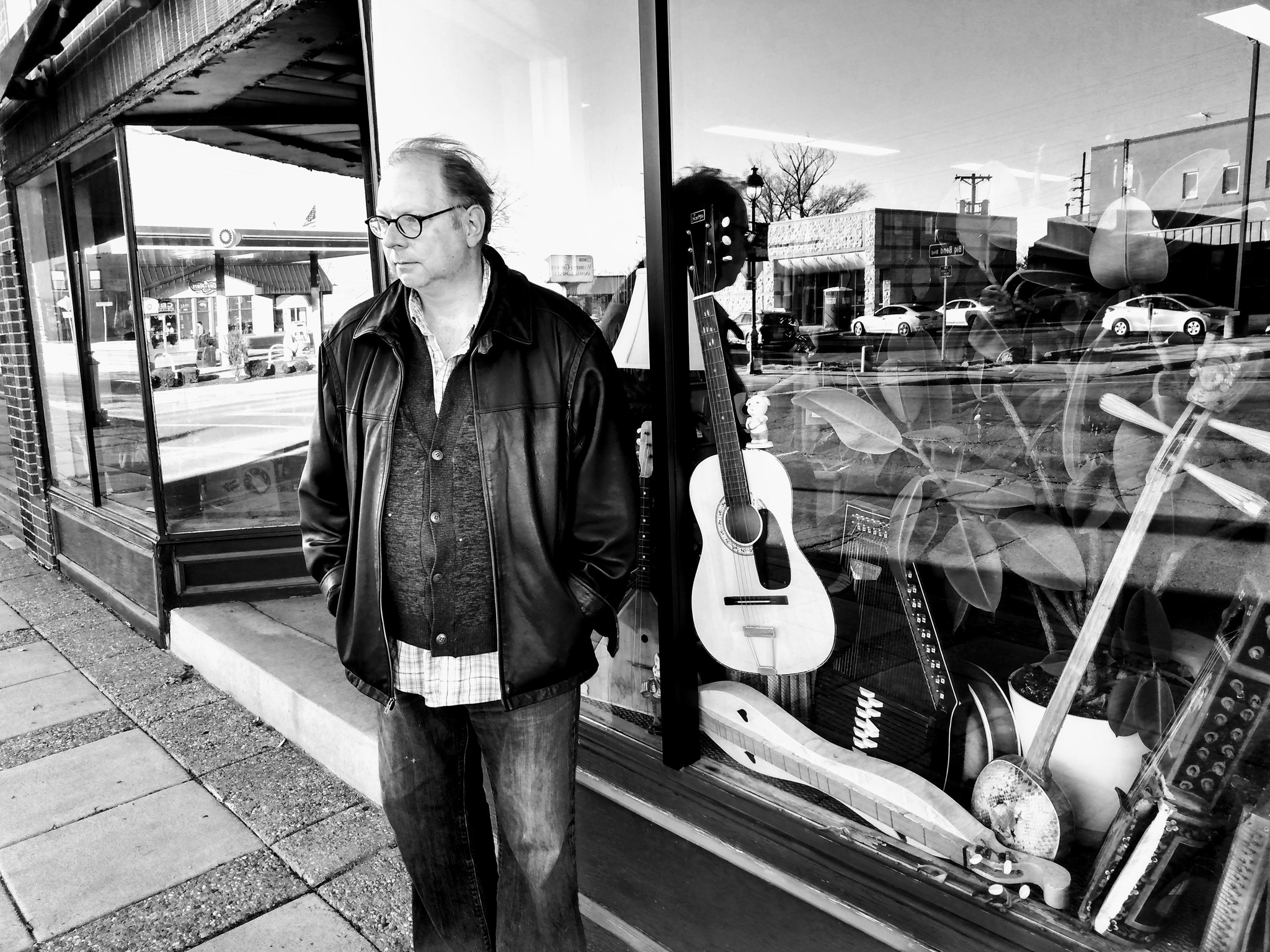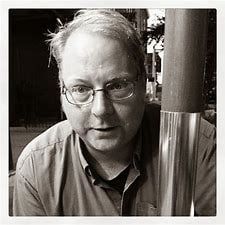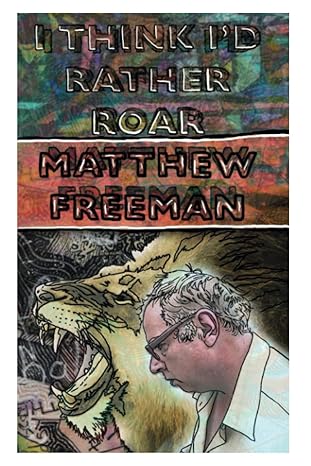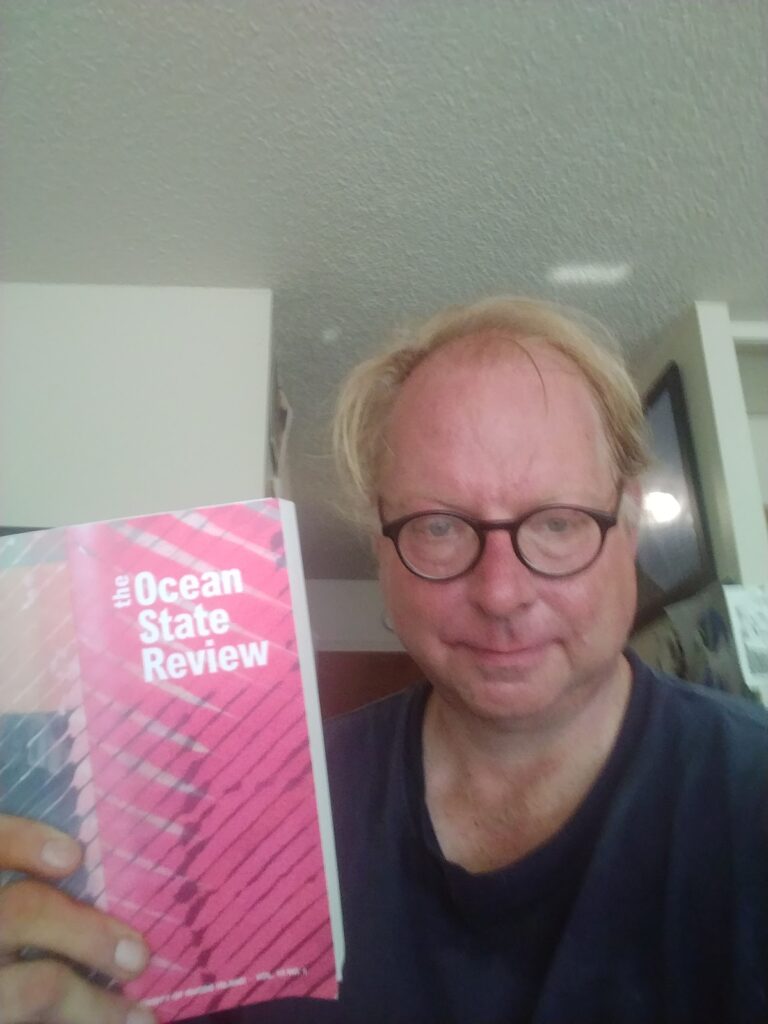
LISA DART – SURVIVAL POETRY AND THE VOICES OF EXPERIENCE
I interviewed Lisa Dart, finalist in the Grolier, Aesthetica and Troubadour Poetry Prizes and author of The Linguistics of Light (poems, Salt, 2008), Fathom (prose


I interviewed poet Matthew Freeman, who recently published his seventh collection I Think I’d Rather Roar. Matthew describes himself as: “Survivor of schizophrenia. Poems all over. Songs on SoundCloud.”
Leslie: Tell us about your family and upbringing, and how they made you into a creative person.
Matthew: I had a fun and chaotic upbringing, with some hard times thrown in. I grew up in Dogtown, the Irish neighborhood in Saint Louis, and it seemed like everyone was always drinking and yelling and telling stories. I often went to sleep with that happy sound. And I think this verbal situation seeped into me. I was a big talker when I had to be. I talked my way out of fights and groundings all the time. They thought I’d be a lawyer or a pastor. I don’t think early on the idea of me becoming a poet ever occurred to anyone as we were all working-class and just wanted some good job.
Leslie: What did your poetry first develop from? What helped and stimulated its growth? How and why has your style changed over time?

Matthew: When I found out I was a poet—or suspected it, at least—there were so many things in the environment that sort of came together. It was in high school that a girl I really liked got me into The Doors and when I watched the famous movie it really won me over. I walked out of there a poet. And at the same time my football coach got me into Dylan Thomas—I tried to write like him for a couple of years. But in another class we were looking at the High Romantics and in the end they influenced me more than anyone else.
Leslie: How have you treated the subject of mental health in your writing? What’s unusual about your approach?
Matthew: I think on some level I wanted to write about consciousness—though I never could have told you that. But that’s really what poems are made of. And when I got schizophrenia my consciousness had become so different from the way it had been—with regard to perception and phenomena—that I knew it was going to be a plus for the poems. It’s a terrible thing to go through, especially at first, but there are some interesting benefits.
Leslie: Can you expand on your self-description as a ‘Survivor of schizophrenia’? How did the condition affect you? What methods did you use to ‘survive’ – and how did those methods work?
Matthew: Well, you know, I lifted “survivor” off of someone else, to be honest. It just sounded really good and upbeat, not depressing. But it’s true that I have survived it—it’s been almost thirty years since my diagnosis. When I was younger I think I might have felt really bad about myself, my friends were all getting jobs and relationships and here I was in the mental hospital. So I made a decision to accept the suffering and just try to live out my dream of being a poet.

Leslie: Tell us about the musical traditions you draw on and how you compose your songs, please.
Matthew: I haven’t composed too many songs lately—I get ideas all the time but I just can’t follow through, I don’t feel like it. I’m always writing poems, though. But when I was young and writing songs I wasn’t just influenced by Dylan and that crowd, but also the early Beatles and the oldies from the late 50s and early 60s. You can see it in the chord changes. And the lyrics I just tried to make clever and tell some story.
Leslie: What have been the stages in developing and recognising your own poetic voice? Leslie: Why do you write?
Matthew: At first I think I wanted to say something that people would have a tough time grasping. But the story of my voice is of one drifting towards clarity and irony and allusion. I use too many exclamation points, people have pointed that out to me. But I like a really good fun sentence that sounds really great and moves things along. I’d really like to rip off fiction as much as possible, to get people who don’t read poetry to read it again, like the old days. You can always read my poems on a couple of levels, but I think most of them make sense. But still, and always, I really just write down what pops into my head. Oh, I’m just the type of person who has to tell things. I have a group of folks I meet with at Starbucks in the morning and frequently I’ll go in with lots of stuff to say. So too when a friend picks me up for lunch. And when I was a kid rushing home to talk to my mom. And I just love poetry so much, nothing’s better. Just to be a very small part of the scene is really wonderful.
Next week, I interview Natalia Millman about her ‘found art’ that responds to dementia, loss and grief.
ABOUT LESLIE TATE’S BOOKS:

I interviewed Lisa Dart, finalist in the Grolier, Aesthetica and Troubadour Poetry Prizes and author of The Linguistics of Light (poems, Salt, 2008), Fathom (prose

I interviewed writer Julia Lee Barclay-Morton about her experience of autism. Julia began as an experimental dramatist in New York, moving to the UK to

I interviewed Gillean McDougall from Glasgow, who edited the collaborative projects Honest Error (on Charles Rennie Mackintosh and his wife Margaret Macdonald) and Writing the

I interviewed French writer Delphine de Vigan, whose book, No et moi, won the prestigious Prix des libraires. Other books of hers have won a clutch

I interviewed Joanne Limburg whose poetry collection Feminismo was shortlisted for the Forward Prize for Best First Collection; another collection, Paraphernalia, was a Poetry Book Society Recommendation. Joanne
| Cookie | Duration | Description |
|---|---|---|
| cookielawinfo-checkbox-analytics | 11 months | This cookie is set by GDPR Cookie Consent plugin. The cookie is used to store the user consent for the cookies in the category "Analytics". |
| cookielawinfo-checkbox-functional | 11 months | The cookie is set by GDPR cookie consent to record the user consent for the cookies in the category "Functional". |
| cookielawinfo-checkbox-necessary | 11 months | This cookie is set by GDPR Cookie Consent plugin. The cookies is used to store the user consent for the cookies in the category "Necessary". |
| cookielawinfo-checkbox-others | 11 months | This cookie is set by GDPR Cookie Consent plugin. The cookie is used to store the user consent for the cookies in the category "Other. |
| cookielawinfo-checkbox-performance | 11 months | This cookie is set by GDPR Cookie Consent plugin. The cookie is used to store the user consent for the cookies in the category "Performance". |
| viewed_cookie_policy | 11 months | The cookie is set by the GDPR Cookie Consent plugin and is used to store whether or not user has consented to the use of cookies. It does not store any personal data. |